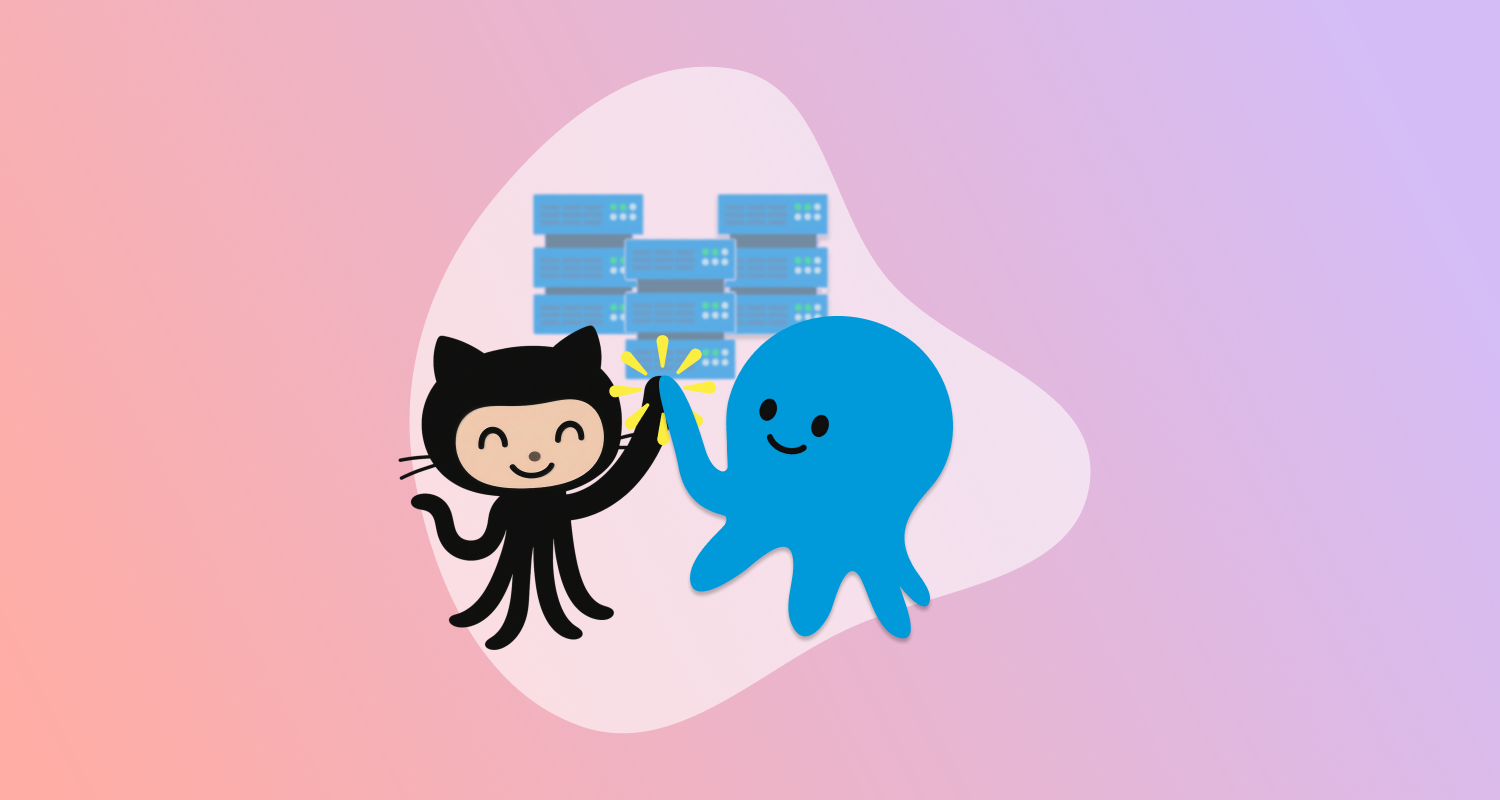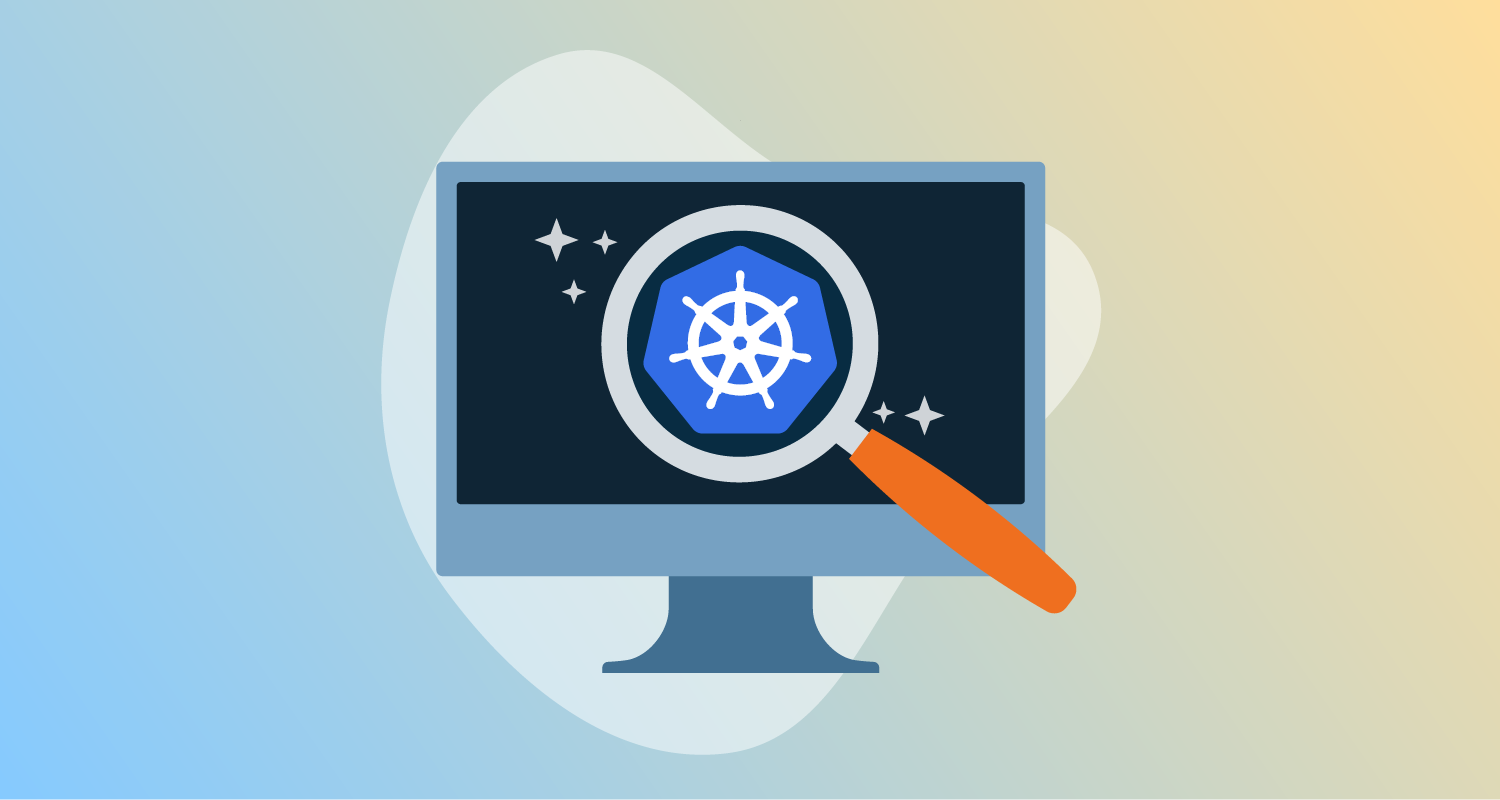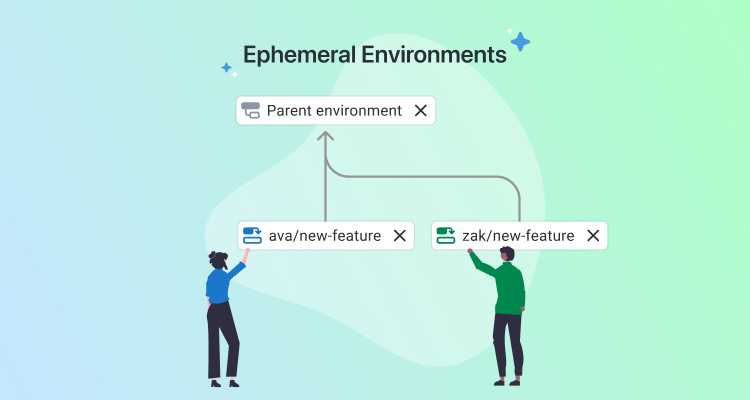Spaces in Octopus Deploy are hard-walled and don’t allow you to share anything between them (except users). This is great for isolation but can be problematic for things you want to share among all spaces, like Workers. Sharing Workers is a scenario we solved to support our Samples instance.
In this post, I explain our solution, which automates sharing of Workers across multiple spaces.
The problem
The infrastructure for our Samples instance is created and destroyed daily. As the Samples instance grew, more demands were being made on the Dynamic Workers where cloud instances are allocated (one Windows and one Linux).
We ran into resource contention issues because the Runbooks we used to create infrastructure would often use the Run Octopus Deploy Runbook step template. You could configure this step template to wait for the invoked runbook to complete; however, this sometimes meant the parent process would wait for the child process to complete, but the child process needed exclusive access (see our post explaining Workers for conditions where this can occur) and would wait for the first task to finish.
The solutions
We needed more Workers available to perform the tasks. We came up with 2 solutions:
- Dedicated Workers
- Shared Workers
Solution 1: Dedicated Workers
Our first iteration to solve this problem was to have each space create its own dedicated Worker. While this worked well, there were 2 issues:
- The Workers were idle 99% of the day
- Our costs increased as we added more spaces
We needed to re-evaluate our cloud resource usage and look for cost savings. We identified Workers, along with things like database server instances, as items that could be shared rather than dedicated.
Solution 2: Shared Workers
Each space in Samples created Workers using the cloud provider that suited their needs. To support this, we created Workers in all 3 cloud providers to share with all spaces.
Using Terraform, we created Workers using the cloud provider scaling features, so if we need more or fewer Workers, we simply adjust the scale accordingly. Provisioning Workers uses a runbook with the following steps:
- Get space list
- Create Workers
- Wait for Workers to register themselves
- Add Workers to remaining spaces
Get Space List
To add the Workers to all of the spaces, we first needed to gather a list of all spaces on the instance. The Get Space List step retrieved the list and set the following output variables:
InitialSpaceName- The name of the first space in our Spaces list, this value is used in the script that’s run on the VMs so they can register themselves to the instance.InitialSpaceId- The ID of the initial space the Workers will be added to.RemainingSpaceIds- A comma delimited list of the remaining space IDs to add the Workers to.WorkerPoolName- Name of the Worker Pool to register and add to in the spaces. Samples has created a consistent list of Worker Pools in all spaces using Terraform.
function Get-OctopusItems
{
# Define parameters
param(
$OctopusUri,
$ApiKey,
$SkipCount = 0
)
# Define working variables
$items = @()
$skipQueryString = ""
$headers = @{"X-Octopus-ApiKey"="$ApiKey"}
# Check to see if there there is already a querystring
if ($octopusUri.Contains("?"))
{
$skipQueryString = "&skip="
}
else
{
$skipQueryString = "?skip="
}
$skipQueryString += $SkipCount
# Get initial set
$resultSet = Invoke-RestMethod -Uri "$($OctopusUri)$skipQueryString" -Method GET -Headers $headers
# Check to see if it returned an item collection
if ($resultSet.Items)
{
# Store call results
$items += $resultSet.Items
# Check to see if resultset is bigger than page amount
if (($resultSet.Items.Count -gt 0) -and ($resultSet.Items.Count -eq $resultSet.ItemsPerPage))
{
# Increment skip count
$SkipCount += $resultSet.ItemsPerPage
# Recurse
$items += Get-OctopusItems -OctopusUri $OctopusUri -ApiKey $ApiKey -SkipCount $SkipCount
}
}
else
{
return $resultSet
}
# Return results
return $items
}
# Define variables
$baseUrl = $OctopusParameters['Samples.Octopus.Url']
$apiKey = $OctopusParameters['Samples.Octopus.Api.Key']
$header = @{ "X-Octopus-ApiKey" = $apiKey }
$initialSpaceName = ""
$initialSpaceId = ""
$remainingSpaceIds = @()
$workerPoolName = "$($OctopusParameters['Project.CloudProvider.Folder.Name']) Worker Pool TF"
# Get all spaces
Write-Host "Getting list of all spaces on $baseUrl ..."
$spaces = Get-OctopusItems -OctopusUri "$baseUrl/api/spaces" -ApiKey $apiKey
# Loop through the spaces
foreach ($space in $spaces)
{
# Get worker pools of space
Write-Host "Getting all worker pools for space $($space.Name) ..."
$workerPools = Get-OctopusItems -OctopusUri "$baseUrl/api/$($space.Id)/workerPools" -ApiKey $apiKey
# Check to see if it has the pool we're looking for
if ($workerPools.Name -contains $workerPoolName)
{
# Check to see if we have an initial space
if ([string]::IsNullOrWhitespace($initialSpaceName))
{
# Assign the values
Write-Host "Initial Space: $($space.name)"
$initialSpaceName = $space.Name
$initialSpaceId = $space.Id
}
else
{
# Add to list
Write-Host "Adding space: $($space.Name)($($space.Id))"
$remainingSpaceIds += $space.Id
}
}
}
# Set output variables
Write-Host "Setting output variable InitialSpaceName to $initialSpaceName"
Set-OctopusVariable -name "InitialSpaceName" -value $initialSpaceName
Write-Host "Setting output variable InitialSpaceId to $initialSpaceId"
Set-OctopusVariable -name "InitialSpaceId" -value $initialSpaceId
Set-OctopusVariable -name "RemainingSpaceIds" -value ($remainingSpaceIds -join ",")
Write-Host "Setting output variable WorkerPoolName to $workerPoolName"
Set-OctopusVariable -name "WorkerPoolName" -value $workerPoolName
Creating Workers
For our shared Workers, we separated the Terraform files into folders designated by the cloud provider. Below are the snippets of Terraform we created for each provider (see the full implementation in GitHub):
AWS Worker Terraform
resource "aws_iam_instance_profile" "linux-worker-profile" {
name = var.octopus_aws_instance_profile_name
role = var.octopus_aws_role_name
}
resource "aws_launch_configuration" "linux-worker-launchconfig" {
name_prefix = var.octopus_aws_launch_configuration_name
image_id = "${var.octopus_aws_linux_ami_id}"
instance_type = var.octopus_aws_ec2_instance_type
iam_instance_profile = "${aws_iam_instance_profile.linux-worker-profile.name}"
security_groups = ["${var.octopus_aws_security_group_id}"]
# script to run when created
user_data = "${file("../configure-tentacle.sh")}"
# root disk
root_block_device {
volume_size = "30"
delete_on_termination = true
}
}
resource "aws_autoscaling_group" "linux-worker-autoscaling" {
name = var.auto_scaling_group_name
vpc_zone_identifier = var.octopus_aws_subnets
launch_configuration = "${aws_launch_configuration.linux-worker-launchconfig.name}"
min_size = var.octopus_aws_autoscalinggroup_size
max_size = var.octopus_aws_autoscalinggroup_size
health_check_grace_period = 300
health_check_type = "EC2"
force_delete = true
tag {
key = "Name"
value = "Samples Linux Worker"
propagate_at_launch = true
}
}Azure Worker Terraform
// Define resource group
resource "azurerm_resource_group" "octopus-samples-azure-workers" {
name = var.octopus_azure_resourcegroup_name
location = var.octopus_azure_location
tags = var.tags
}
// Define virtual network
resource "azurerm_virtual_network" "octopus-samples-workers-virtual-network" {
name = "octopus-samples-workers"
address_space = ["10.0.0.0/16"]
location = var.octopus_azure_location
resource_group_name = var.octopus_azure_resourcegroup_name
depends_on = [
azurerm_resource_group.octopus-samples-azure-workers
]
tags = var.tags
}
// Define subnet
resource "azurerm_subnet" "octopus-samples-workers-subnet" {
name = "octopus-samples-workers-subnet"
resource_group_name = var.octopus_azure_resourcegroup_name
virtual_network_name = azurerm_virtual_network.octopus-samples-workers-virtual-network.name
address_prefixes = ["10.0.2.0/24"]
depends_on = [
azurerm_resource_group.octopus-samples-azure-workers,
azurerm_virtual_network.octopus-samples-workers-virtual-network
]
}
// Define azure scale set
resource "azurerm_linux_virtual_machine_scale_set" "samples-azure-workers" {
name = var.octopus_azure_scaleset_name
resource_group_name = var.octopus_azure_resourcegroup_name
location = var.octopus_azure_location
sku = var.octopus_azure_vm_size
instances = var.octopus_azure_vm_instance_count
admin_username = var.octopus_azure_vm_admin_username
admin_password = var.octopus_azure_vm_admin_password
disable_password_authentication = false
user_data = "${base64encode(file("../configure-tentacle.sh"))}"
identity {
type = "SystemAssigned"
}
source_image_reference {
publisher = "Canonical"
offer = "UbuntuServer"
sku = var.octopus_azure_vm_sku
version = "latest"
}
os_disk {
storage_account_type = "Standard_LRS"
caching = "ReadWrite"
}
network_interface {
name = "example"
primary = true
ip_configuration {
name = "internal"
primary = true
subnet_id = azurerm_subnet.octopus-samples-workers-subnet.id
}
}
tags = var.tags
}GCP Worker Terraform
resource "google_compute_instance" "vm_instance" {
count = var.instance_count
name = "${var.instance_name}-${count.index + 1}"
machine_type = var.instance_size
boot_disk {
initialize_params {
image = var.instance_osimage
size = 30
}
}
network_interface {
network = "default" #google_compute_network.vpc_network.name
access_config {
// Ephemeral public IP - needed to send and receive traffic directly to and from outside network
}
}
metadata_startup_script = file("../configure-tentacle.sh")
service_account {
email = google_service_account.database_service_account.email
scopes = ["cloud-platform"]
}
tags = ["octopus-samples-worker"]
}
output "ip" {
value = google_compute_instance.vm_instance[*].network_interface[0].access_config[0].nat_ip
}The Terraform package includes a Bash script run on the VMs created by the cloud scaling technology. When executed, the VM registers itself to the Space and Pool from the output variables of the Get Space List step.
#!/bin/bash
serverUrl="#{Samples.Octopus.Url}"
serverCommsPort="10943"
apiKey="#{Samples.Octopus.Api.Key}"
name=$HOSTNAME
configFilePath="/etc/octopus/default/tentacle-default.config"
applicationPath="/home/Octopus/Applications/"
workerPool="#{Octopus.Action[Get Samples Spaces].Output.WorkerPoolName}"
machinePolicy="Default Machine Policy"
space="#{Octopus.Action[Get Samples Spaces].Output.InitialSpaceName}"
# Install Tentacle
sudo apt-key adv --fetch-keys "https://apt.octopus.com/public.key"
sudo add-apt-repository "deb https://apt.octopus.com/ focal main"
sudo apt-get update
sudo apt-get install tentacle -y
# Install Docker
sudo apt install apt-transport-https ca-certificates curl software-properties-common -y
curl -fsSL https://download.docker.com/linux/ubuntu/gpg | sudo apt-key add -
sudo add-apt-repository "deb [arch=amd64] https://download.docker.com/linux/ubuntu focal stable"
sudo apt-get install docker-ce docker-ce-cli containerd.io -y
# Install wget
sudo apt-get install wget -y
# Download the Microsoft repository GPG keys
wget https://packages.microsoft.com/config/debian/10/packages-microsoft-prod.deb
# Register the Microsoft repository GPG keys
sudo dpkg -i packages-microsoft-prod.deb
# Update the list of products
sudo apt-get update
# Install PowerShell
sudo apt-get install -y powershell
# Pull worker tools image
sudo docker pull #{Project.Docker.WorkerToolImage}:#{Project.Docker.WorkerToolImageTag}
# Configure and register worker
sudo /opt/octopus/tentacle/Tentacle create-instance --config "$configFilePath" --instance "$name"
sudo /opt/octopus/tentacle/Tentacle new-certificate --if-blank
sudo /opt/octopus/tentacle/Tentacle configure --noListen True --reset-trust --app "$applicationPath"
echo "Registering the worker $name with server $serverUrl"
sudo /opt/octopus/tentacle/Tentacle service --install --start
sudo /opt/octopus/tentacle/Tentacle register-worker --server "$serverUrl" --apiKey "$apiKey" --name "$name" --comms-style "TentacleActive" --server-comms-port $serverCommsPort --workerPool "$workerPool" --policy "$machinePolicy" --space "$space"
sudo /opt/octopus/tentacle/Tentacle service --restartWaiting for Workers to register themselves
Before we could add the Workers to the other spaces, the Workers needed to register themselves. This step monitored the Worker Pool until the desired number of Worker machines were registered.
# Define parameters
$baseUrl = $OctopusParameters['Samples.Octopus.Url']
$apiKey = $OctopusParameters['Samples.Octopus.Api.Key']
$header = @{ "X-Octopus-ApiKey" = $apiKey }
$spaceId = $OctopusParameters['Octopus.Action[Get Samples Spaces].Output.InitialSpaceId']
$spaceName = $OctopusParameters['Octopus.Action[Get Samples Spaces].Output.InitialSpaceName']
$workerPoolName = $OctopusParameters['Octopus.Action[Get Samples Spaces].Output.WorkerPoolName']
if ($baseUrl.EndsWith("/"))
{
$baseUrl = $baseUrl.SubString(0, $baseUrl.LastIndexOf("/"))
}
# Get worker pool
Write-Host "Getting reference to $workerPoolName in space $spaceName ..."
$workerPool = ((Invoke-RestMethod -Method Get -Uri "$baseUrl/api/$($spaceId)/workerpools/all" -Headers @{"X-Octopus-ApiKey"="$apiKey"}) | Where-Object {$_.Name -eq $workerPoolName})
# Check worker pool
if ($null -ne $workerPool)
{
# Get all workers
Write-Host "Checking to see if workers have registered themselves ..."
$workers = (Invoke-RestMethod -Method Get -Uri "$baseUrl/api/$($spaceId)/workerpools/$($workerPool.Id)/workers" -Headers @{"X-Octopus-ApiKey"="$apiKey"})
$retries = 20
$cloudProvider = $OctopusParameters['Project.CloudProvider.Folder.Name']
$numberOfWorkersKey = $OctopusParameters.Keys | Where-Object {$_ -like "*$cloudProvider*" -and $_ -like "*Instance.Count*"}
$numberOfWorkers = $OctopusParameters[$numberOfWorkersKey]
while ($workers.Items.Count -ne $numberOfWorkers)
{
if ($retries -gt 0)
{
Write-Host "Waiting 60 seconds for $numberOfWorkers workers to register themselves, $retries tries remaining ..."
Start-Sleep -Seconds 60
$retries--
$workers = (Invoke-RestMethod -Method Get -Uri "$baseUrl/api/$($spaceId)/workerpools/$($workerPool.Id)/workers" -Headers @{"X-Octopus-ApiKey"="$apiKey"})
}
else
{
Write-Error "Workers didn't show up in time!"
}
}
}Adding Workers to remaining spaces
After we added the Workers to the first space, we used the API to add them to the remaining spaces.
function Get-OctopusItems
{
# Define parameters
param(
$OctopusUri,
$ApiKey,
$SkipCount = 0
)
# Define working variables
$items = @()
$skipQueryString = ""
$headers = @{"X-Octopus-ApiKey"="$ApiKey"}
# Check to see if there there is already a querystring
if ($octopusUri.Contains("?"))
{
$skipQueryString = "&skip="
}
else
{
$skipQueryString = "?skip="
}
$skipQueryString += $SkipCount
# Get initial set
$resultSet = Invoke-RestMethod -Uri "$($OctopusUri)$skipQueryString" -Method GET -Headers $headers
# Check to see if it returned an item collection
if ($resultSet.Items)
{
# Store call results
$items += $resultSet.Items
# Check to see if resultset is bigger than page amount
if (($resultSet.Items.Count -gt 0) -and ($resultSet.Items.Count -eq $resultSet.ItemsPerPage))
{
# Increment skip count
$SkipCount += $resultSet.ItemsPerPage
# Recurse
$items += Get-OctopusItems -OctopusUri $OctopusUri -ApiKey $ApiKey -SkipCount $SkipCount
}
}
else
{
return $resultSet
}
# Return results
return $items
}
# Define variables
$baseUrl = $OctopusParameters['Samples.Octopus.Url']
$apiKey = $OctopusParameters['Samples.Octopus.Api.Key']
$header = @{ "X-Octopus-ApiKey" = $apiKey }
$remainingSpaceIds = $OctopusParameters['Octopus.Action[Get Samples Spaces].Output.RemainingSpaceIds'].Split(",")
$initialSpaceId = $OctopusParameters['Octopus.Action[Get Samples Spaces].Output.InitialSpaceId']
$initialWorkerPoolName = "$($OctopusParameters['Project.CloudProvider.Folder.Name']) Worker Pool TF"
# Get registered workers
$initialWorkerPool = (Get-OctopusItems -OctopusUri "$baseUrl/api/$initialSpaceId/workerPools" -ApiKey $apiKey | Where-Object {$_.Name -eq $initialWorkerPoolName})
$workers = Get-OctopusItems -OctopusUri "$baseUrl/api/$initialSpaceId/workerPools/$($initialWorkerPool.Id)/workers" -ApiKey $apiKey
# Loop through the spaces
foreach ($spaceId in $remainingSpaceIds)
{
$workerPool = (Get-OctopusItems -OctopusUri "$baseUrl/api/$spaceId/workerPools" -ApiKey $apiKey | Where-Object {$_.Name -eq $initialWorkerPoolName})
# Check worker pool
Write-Host "Verifying that space Id $spaceId has a worker pool called $initialWorkerPoolName ..."
if ($null -ne $workerPool)
{
# Get default machine policy
$machinePolicy = (Get-OctopusItems -OctopusUri "$baseUrl/api/$spaceId/machinepolicies" -ApiKey $apiKey | Where-Object {$_.Name -eq "Default Machine Policy"})
# Loop through workers
foreach ($worker in $workers)
{
# Build JSON payload
$jsonPayload = @{
Name = $worker.Name
MachinePolicyId = $machinePolicy.Id
IsDisabled = $worker.IsDisabled
HealthStatus = $worker.HealthStatus
HasLatestCalamari = $worker.HasLatestCalamari
IsInProcess = $true
EndPoint = $worker.Endpoint
WorkerPoolIds = @($workerPool.Id)
}
try
{
# Add worker
Write-Host "Adding $($worker.Name) to space Id $spaceId..."
Invoke-RestMethod -Method Post -Uri "$baseUrl/api/$($spaceId)/workers" -Body ($jsonPayload | ConvertTo-Json -Depth 10) -Headers $header
}
catch
{
Write-Highlight "An error occurred adding $($worker.Name) to space Id $spaceId"
Write-Warning "An error occurred adding $($worker.Name) to space Id $spaceId"
Write-Host "StatusCode:" $_.Exception.Response.StatusCode.value__
Write-Host "StatusDescription:" $_.Exception.Response.StatusDescription
}
}
}
}Conclusion
Sharing Workers across all spaces on our Samples instance let us consolidate and use resources more efficiently. I hope this post gives you some ideas on how to do the same.
Happy deployments!






